By submitting your application using the below form, you are accepting the terms in our terms and conditions. Terms and conditions and Privacy Policy
Lets work together
Jersey Electricity Group consists of several complementary businesses beyond energy supply. Find out what else we do.
View All Our BusinessesA low carbon future is within our power. And it’s projects like these that’ll ensure a robust, reliable, low-carbon, sustainable electricity supply for generations.
View All ProjectsDiscover who leads Jersey Electricity; meet our Board and our Executive Leadership Team.
All Areas

We're committed to supporting Island life through our community impact programme, providing funding and resources to Jersey causes.

Through 100 Projects That Matter, our community impact programme, we are making a tangible and lasting difference in our community.
The initiative is built around four key pillars, reflecting our commitment to education, health, the environment and diversity, equity and inclusion.

What support do we offer?
This scheme offers support for event sponsorship, sponsorship or partnerships (such as workplace partner schemes), charity activities, installations, donations, community initiatives and JE employee support.

Our aim with this initiative is to support the above groups in a variety of causes benefiting Islanders in areas focusing on, health, education, the environment and diversity, equity and inclusion.
Discover what each area covers below.
Health: We will support projects that promote community well-being and encourage healthy lifestyles. Examples may include funding mental health initiatives and investing in resources to improve community health.
Education: Our focus on education will prioritise initiatives that foster learning and improving understanding, especially those aimed at preparing the Island for a zero-carbon future. This includes sponsoring STEM-related programs, supporting schools in delivering energy and sustainability education, and enabling career development in green technologies.
Environment: Supporting environmental stewardship. Funding will be allocated to projects that protect and enhance Jersey's natural environment and help the Island conserve resources, aligning with our dedication to sustainability. From conservation programmes to carbon reduction initiatives, these projects will help preserve Jersey's unique beauty for future generations.
Diversity, Equity and Inclusion: Inspiring engagement within the community to support the Diversity, Equity and Inclusion agenda, supporting minority groups on the Island.
Applications are open all year round, with reviews taking place quarterly. Please consider our below review dates before applying.
Q1 - 1 January until 31 March will receive an answer in April.
Q2 - 1 April until 30 June will receive an answer in July
Q3 - 1 July until 30 September will receive an answer in October
Q4 - 1 October until 23 November will receive an answer in December. (A shorter month is assigned to cater to Christmas and seasonal request volumes to align with our reporting period).
You can apply for our funding options using the form below.
To complete the form you will need:
Your full name
Contact details
Organisation/ Charity name (Please include your charity number if applicable)
Type of request (refer to criteria in the 'Working with you for Jersey section')
Details of your request
Value requested (We offer support for projects which meet the criteria specified up to a maximum of £5,000)
Upload any supporting documentation.

Thinking of submitting an application? Please review our FAQs to familiarise yourself with the details of 100 Projects That Matter, including the criteria, quarterly application deadlines and funding details.
By submitting your application using the below form, you are accepting the terms in our terms and conditions. Terms and conditions and Privacy Policy
Lets work together

Over 20 pupils at Grands Vaux were given the opportunity over the summer holidays to attend several amazing activities.
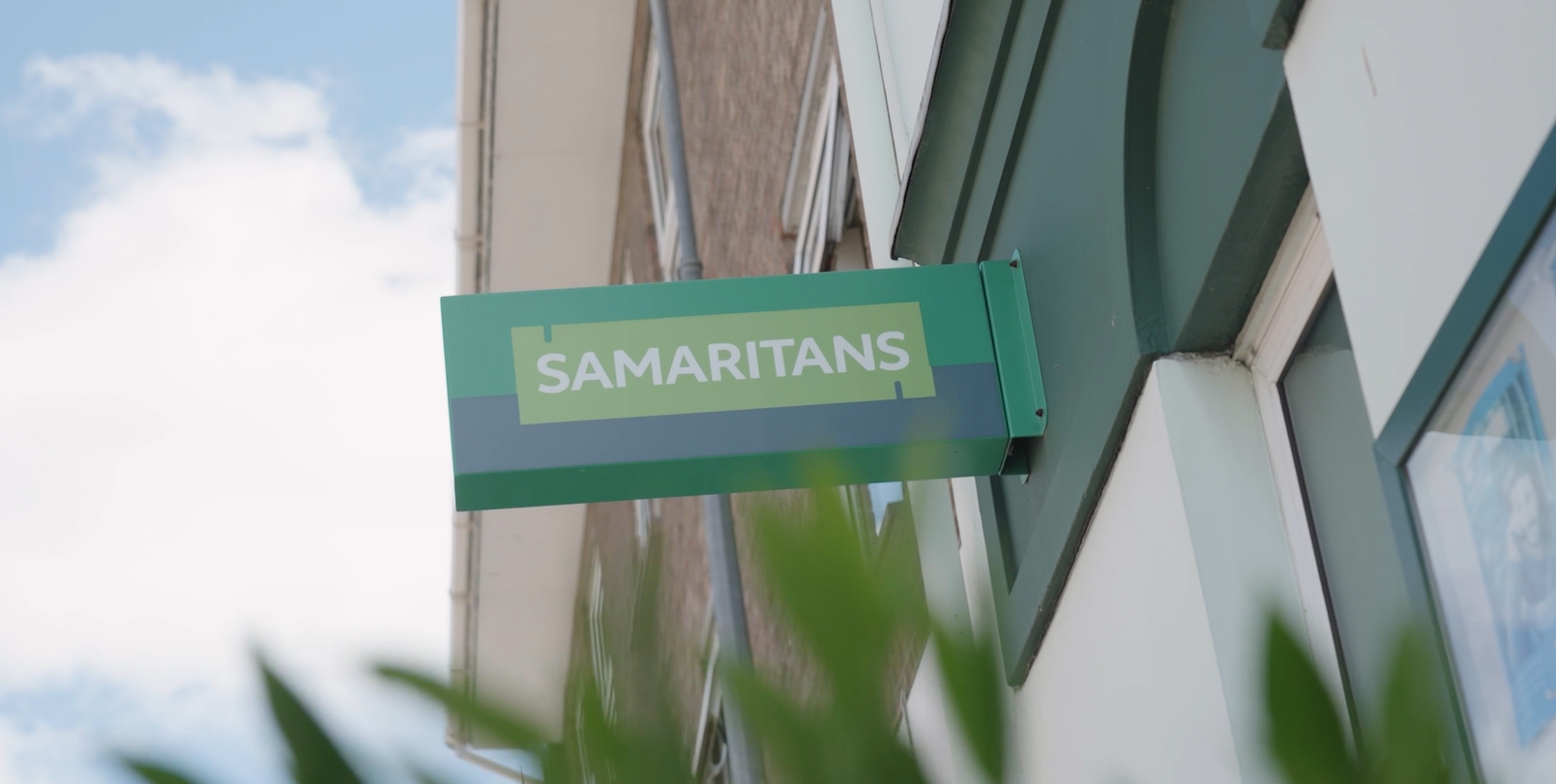
Samaritans offices receive a new electric heating system ready for winter.
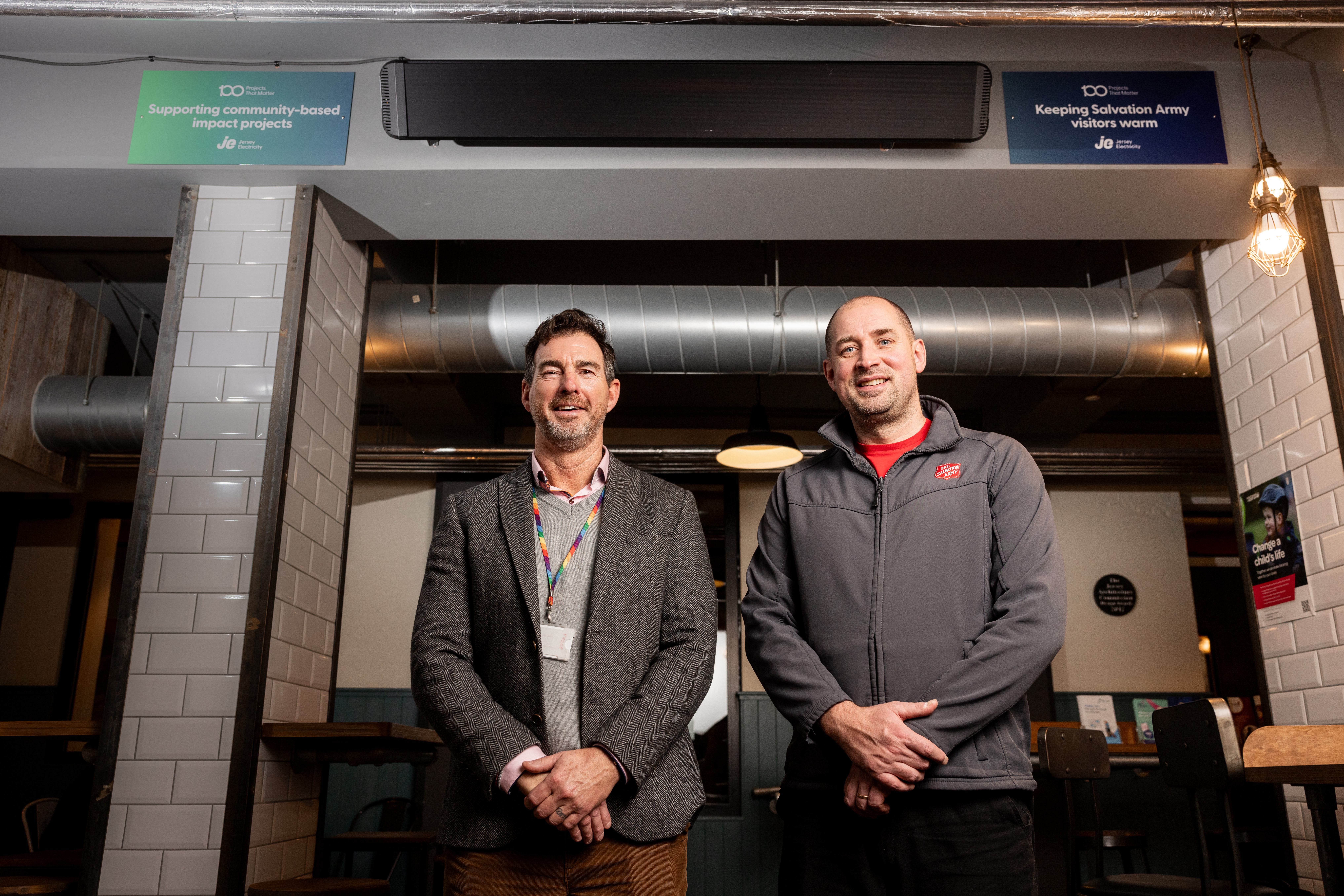
The Salvation Army now has heating installed in its Minden Street café to ensure visitors stay warm this winter.
Your 5 character Customer Number can be found in the top right and bottom left corners of your bill.
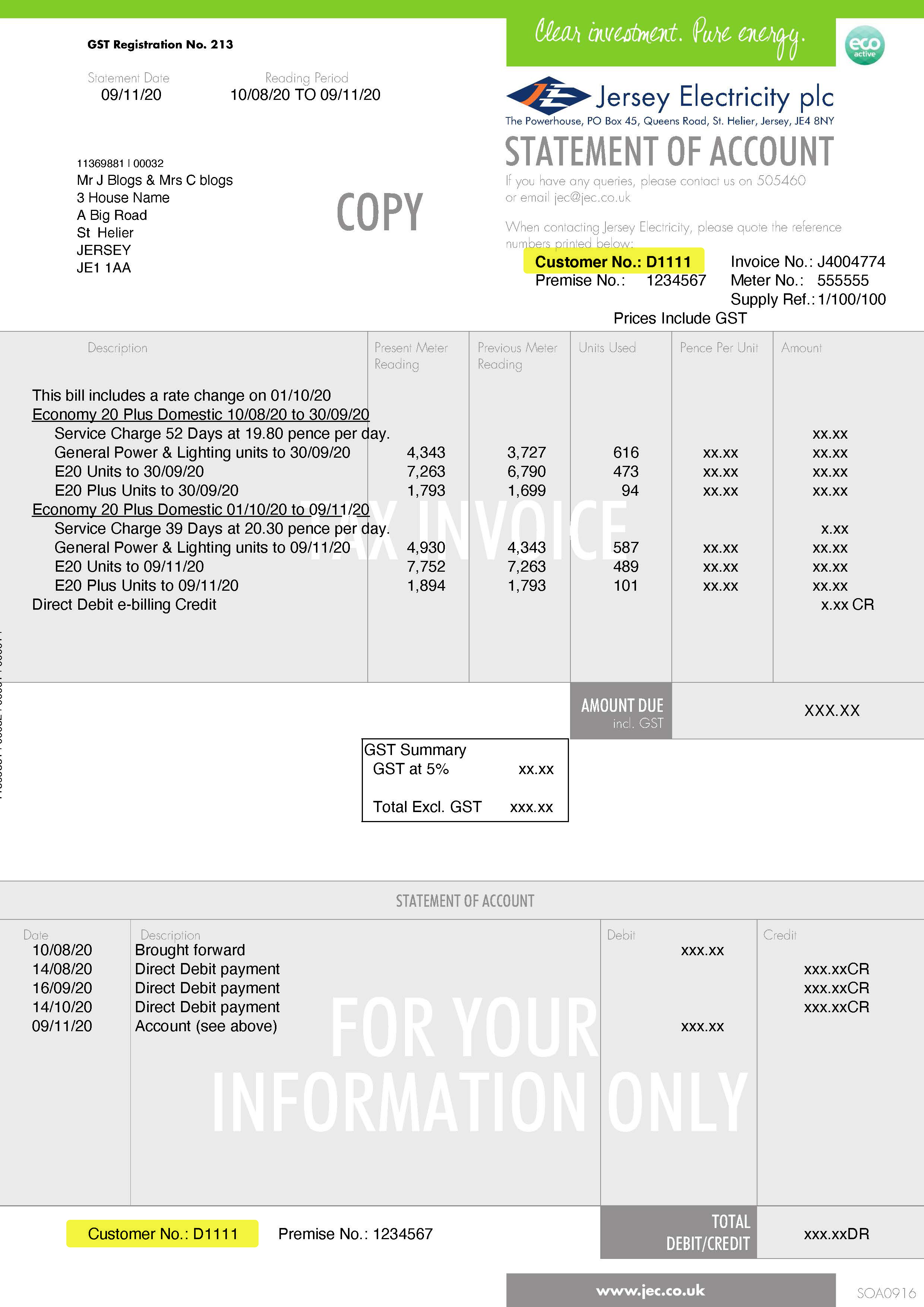
The Daily Service Charge covers energy support services such as metering, billing, Customer Care, safety obligations and other energy support services.
Off-peak means not at the most popular time. Some of our tariffs provide discounted rates at off-peak times - for example, during certain periods at night.
Our current off peak electric vehicles times are from 00:00 to 06:59.
A dedicated supply circuit is an electrical circuit that is set aside for a specific purpose, such as powering a boiler. It will work with a single appliance only.
It will have its own circuit breaker in your fuse box, and no other device or appliance will be able to draw power from it. A dedicated supply circuit ensures that appliances can draw the current they need without overloading your system, blowing a fuse or tripping an electric circuit.
This can be found on the top right corner of your bill here
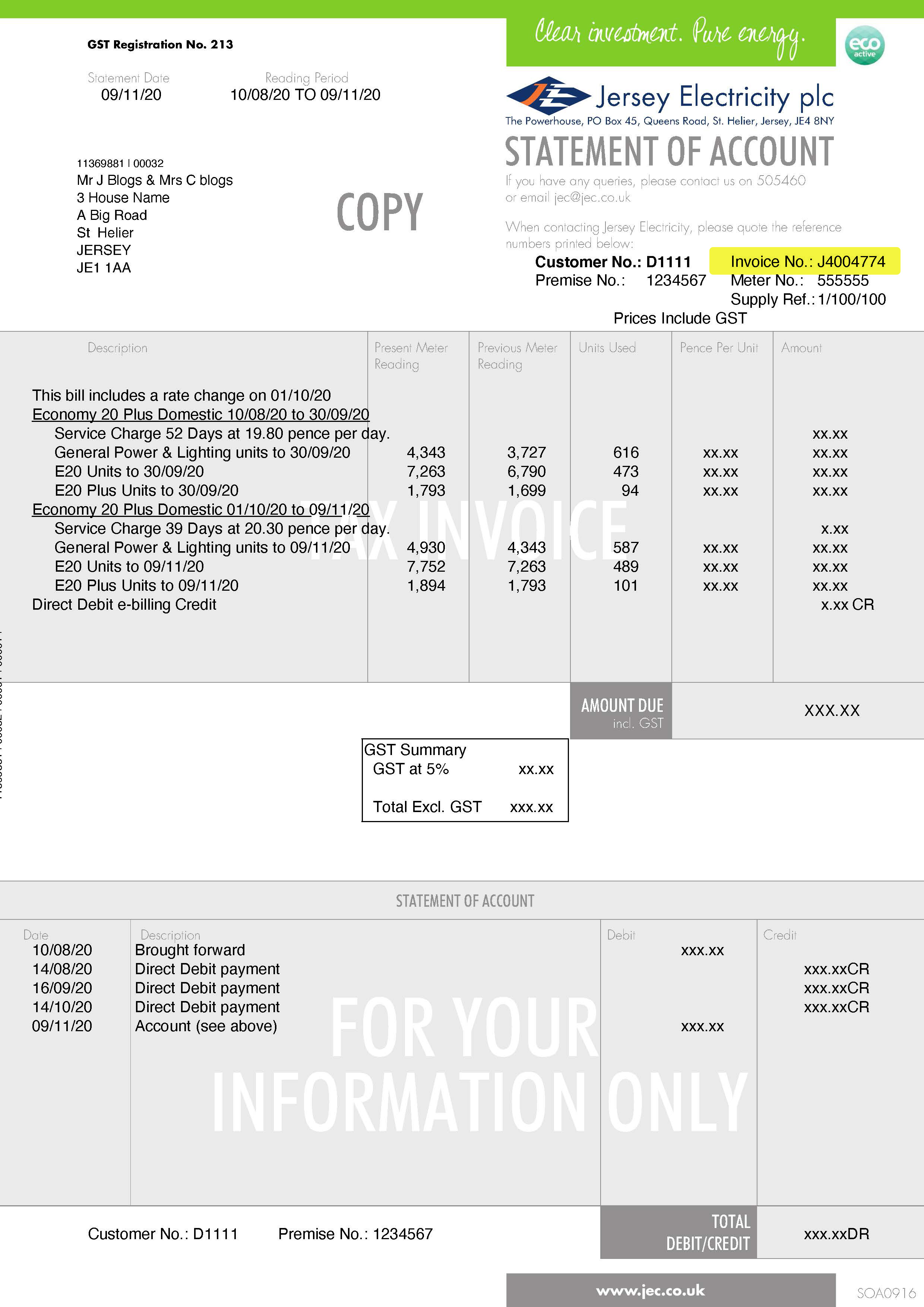
This can be found on the top right corner and bottom left corner of your bill.
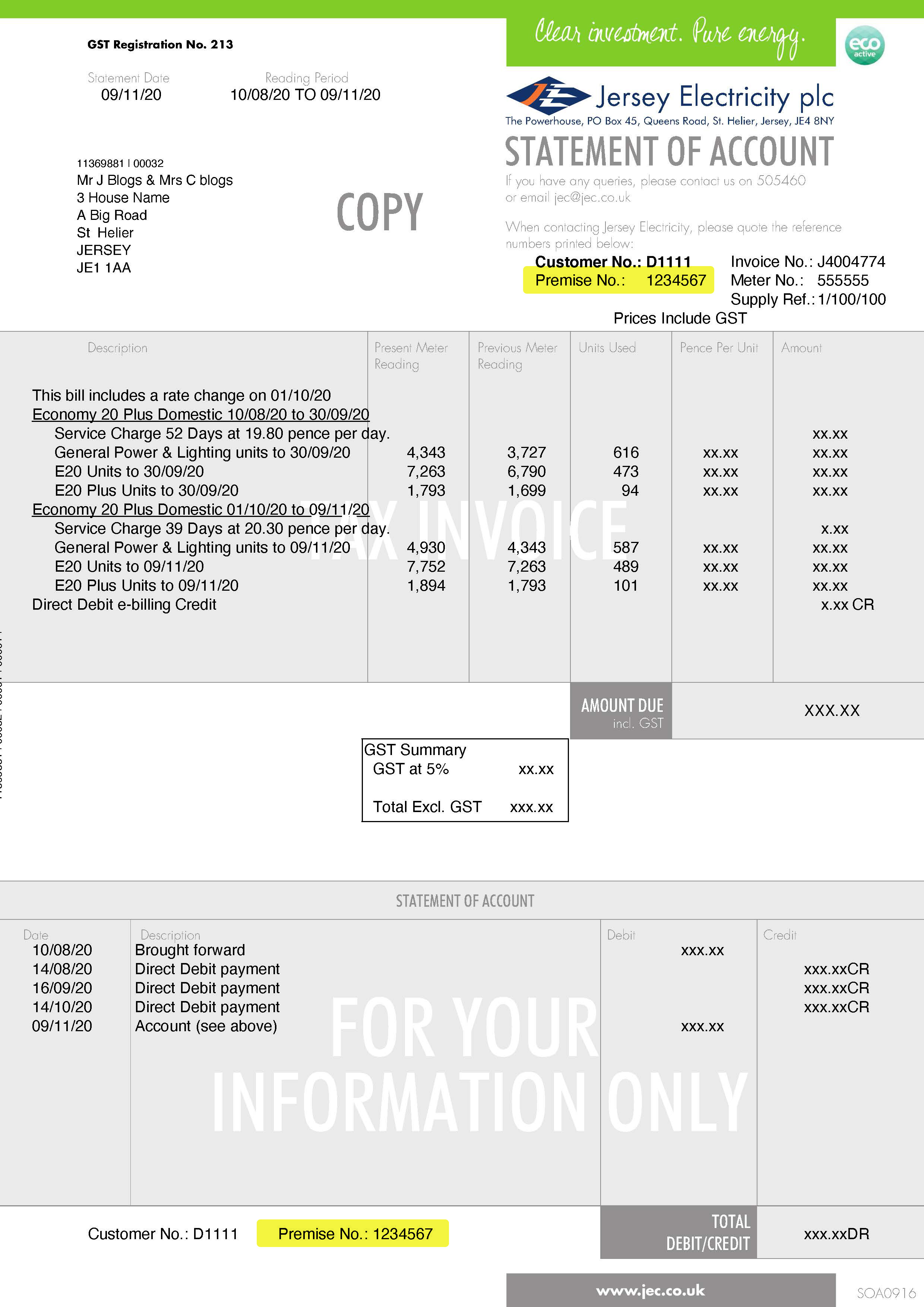
This can be found at the bottom of your bill here
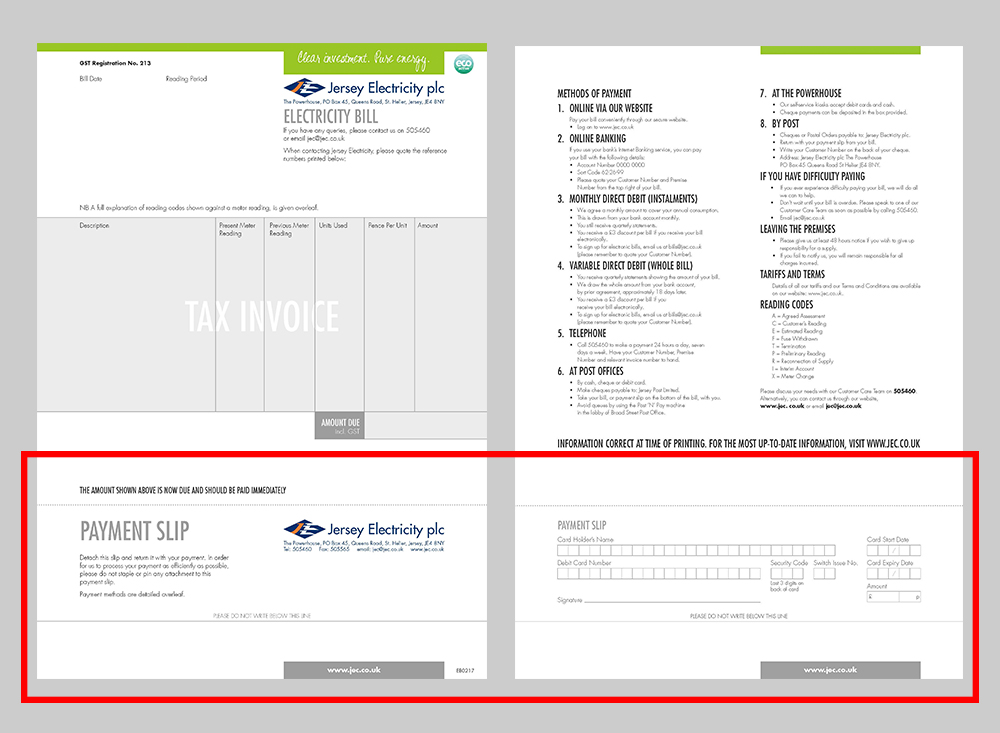
Peak load or peak demand is a short period when the demand for electricity is at its highest.
Electricity consumption is usually measured in kilowatt hours, or kWh for short. Each kWh of electricity equates to 'one unit of electricity' for billing purposes. A 1kW (1,000 Watts) appliance in use for one hour = 1kWh (one unit). The cost per unit used depends on which tariff you are on.
Residential homes are usually served by a single-phase power supply, while commercial and industrial facilities usually use a three-phase supply.
One difference between single-phase and three-phase is that a three-phase power supply better accommodates higher loads. Single-phase power supplies are most commonly used when typical loads are lighting or heating, rather than large electric motors.
Another important difference between 3-phase power and single phase power is the consistency of power delivery. Because of the variations in voltage, single-phase power supply does not offer the same consistency as a three-phase power supply. A three-phase power supply delivers power at a steady, constant rate.
A kVA is simply 1,000 volt-amps. A volt-amp, or ampere, (VA) is the voltage times the current feeding an electrical load.
Embedded generators like wind turbines and solar panels are connected to your electricity supply and provide electricity for onsite use. They also have the capability to export back to the grid.
Your Smart Card Number is the 19-digit number displayed below the barcode on your Smart Card.
The Smart Card Number also contains your six-digit Meter Number that is also displayed on your meter. You need this to top up a Smart Pay As You Go Meter whether at a Payzone outlet or online.
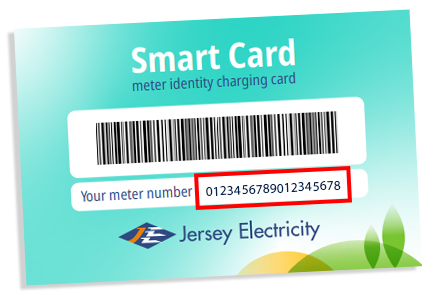
A Smart Card contains your unique Smart Card Number used when topping up a Smart Pay As You Go Meter.
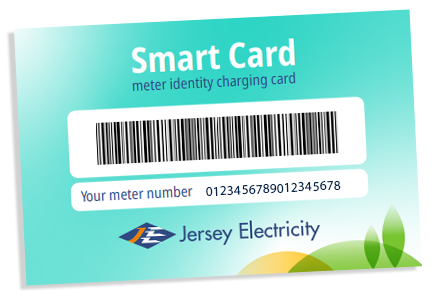
F-credit is a Pay As You Go meter display and means Friendly Credit. It is the period between 9pm and 8am. If the credit on your meter runs out during this period, your supply will remain on until 8am.
The process of reducing carbon by replacing fossil fuels with fuel that is less harmful to the environment such as low-carbon electricity.
With conventional braking systems, the kinetic energy that was propelling the vehicle forward gets converted to unwanted and wasted heat by the friction of the brakes.
Regenerative braking recaptures much of the car's kinetic energy and converts it into electricity, so that it can be used to recharge the car's batteries.
In addition to improving the efficiency of a vehicle, regeneration can significantly extend the life of the braking system, as the mechanical parts will not wear out as quickly.
Power factor is the ratio of useful power in kilowatts (kW) to apparent power, measured in kilovolt amperes (kVA). A perfect power factor would be 1.0, however in reality this is almost impossible to achieve. Office buildings are usually between 0.98 and 0.92. Bad power factor is anything below 0.85.
Electric flow boilers are simple to install, quiet in operation, 100% efficient and integrate into most existing radiator or underfloor piped systems. Plus, with no flue or storage tank, an electric boiler is a space-saving option that can be installed almost anywhere in your home.
A heating system, approved by Jersey Electricity, on a dedicated supply for use on one of our discounted heating tariffs.
To learn more about what's required for an approved heating system, view our current approved heating guidelines.
The 20-digit payment code is issued with your receipt for a Pay As You Go (PAYG) meter top-up. If your meter did not charge automatically, you can do it manually with the payment code. Press button A on your meter then key in your 20-digit payment confirmation code on the meter keypad, then press button B. Your meter will recognise the amount paid and charge accordingly.
Single-phase power supplies are most commonly used when typical loads are lighting or heating, as in a domestic home, rather than large electric motors and higher loads. Single-phase power is a two-wire alternating current (AC) power circuit.
To access up to £9,000 government heating incentive, you will need an Energy Performance Certificate (EPC). We can help arrange this for you.
The Government's low carbon heating incentive is a financial incentive to help move households and businesses away from fossil fuels.
Those with an oil or gas heating system can now apply for up to £9,000+ match funding towards a low carbon alternative.